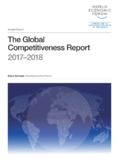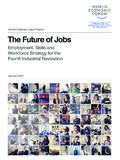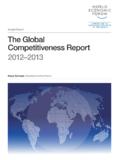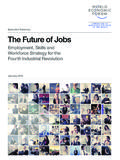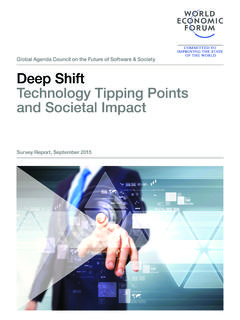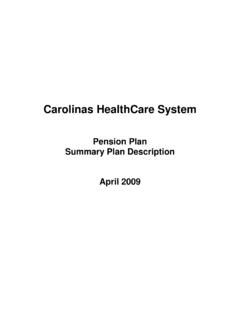Transcription of Healthcare Industry 2013 Sustainable Health Systems ...
1 Sustainable Health Systems Visions, Strategies, Critical Uncertainties and ScenariosHealthcare Industry 2013 January 2013A report from the World Economic ForumPrepared in collaboration with McKinsey & Company World Economic Forum2013 - All rights reserved. No part of this publication may be reproduced or transmitted in any form or by any means,including photocopying and recording, or by any information storage and retrieval system. The views expressed are those of certain participants in the discussion and do not necessarily reflect the views of all participants or of the World Economic Forum. REF 1501133 Visions, Strategies, Critical Uncertainties and ScenariosContents3 Preface4 Executive Summary5 Rethinking Health Systems7 Visions to 20409 Country Strategies17 Critical Uncertainties19 Scenarios26 Conclusion27 Annex 1 Process and Stakeholder Engagement28 Annex 2 Drivers of Change29 Acknowledgements31 Project TeamPrefaceThe World Economic Forum has made Health a priority global initiative, recognizing it as central to the Forum s overall mission to improve the state of the at Health as a fundamental economic issue.
2 The Forum aims to address two major gaps-access to Health and access to care - making Health and care an investment for economic development and believe the current economic crisis represents a welcome opportunity to design our Health Systems for the future. The context for Health is rapidly changing; increasingly in advanced economies, Healthcare Systems are deemed financially unsustainable, while in emerging economies, they are still being purpose of the project and this report is to support strategic dialogue among various stakeholders on what Health Systems are now, what they might be in the future and how they could adapt to be Sustainable .
3 Sustainability is unlikely to be achieved through incremental changes. Instead, transformative solutions will be needed solutions that require cooperation across Industry sectors and governments, and thereby challenge the current boundaries of Healthcare and established norms of operation. In this context, the World Economic Forum has provided a neutral platform for more than 200 stakeholders and experts from governments, Industry and civil society to explore the question: what might Health Systems look like in 2040?Supported by the Forum s Strategic Foresight methods, the project has facilitated discussions about how Health Systems could be organized in the future.
4 Scenarios were developed to demonstrate that radically different Health Systems are imaginable, to explore boundaries of Health Systems and the roles of different actors, and to provide a framework for interpreting future contextual developments that might affect Health Systems . We also conducted country workshops in China, Germany, the Netherlands, Spain and England to support public and private actors in starting national conversations about transforming their Health Systems . In these interactions, stakeholders articulated elements of a vision for their countries Health Systems and explored top-line strategies to achieve those desired futures.
5 We hope policy-makers and business leaders find this report relevant and useful and that the process of developing scenarios, visions and strategies is a good catalyst for future discussions and the development of collaborative solutions for Sustainable Health Systems . Klaus SchwabExecutive ChairmanWorld Economic Forum4 Achievements and advances in Health and Healthcare are a major success story of the past two centuries. However, this success has come at a cost, with Healthcare expenditure outstripping GDP growth for decades across the Organisation for Economic Co-operation and Development (OECD) countries. Given the main reasons for rising Health expenditures, it is unlikely that focusing solely on improving Healthcare supply efficiencies will lead to Sustainable Health Systems in the future.
6 Instead, societies must look outside the traditional institutions, processes and people, known today as the Healthcare system, to a broader emerging Health system that this report today s economic climate, many governments are targeting Healthcare expenditure for cost-cutting as part of broader austerity programs. A discussion on long-term sustainability therefore is timely to ensure that short-term priorities do not damage long-term value. Health system leaders need to think for the future, expanding the group of responsible stakeholders and breaking from the status quo to deliver high quality, full-access, affordable, Sustainable Health the past year, the World Economic Forum, in collaboration with its Partners and McKinsey & Company, engaged over 200 Health system leaders, policy-makers and experts in an ambitious global effort to provide a long-term and holistic analysis of Sustainable Health Systems .
7 The central question: what could Health Systems look like in 2040?Looking to the future helps to improve the decision-making of today. A longer-term perspective provides an intellectual space devoid of current constraints, vested interests or immediate concerns, and enables us to focus on what really matters. Focusing 30 years ahead, the important trumps the urgent. Participants used a set of complementary methods, including visions, strategies, critical uncertainties and scenarios. This report presents the thoughts of leading experts and decision-makers on the future of Health Systems , highlighting the learning and key messages derived.
8 The aim is to equip policy-makers and business leaders around the world with tools, processes and insights to drive the discussion in their own organizations and diverse group of Health system leaders across five countries was asked to describe their ideal Health system in 2040. Their visions are remarkable in their consistency. The preferred Health system of the future is strikingly different from the national Healthcare Systems of today, with empowered patients, more diverse delivery models, new roles and stakeholders, incentives and norms. The country workshops revealed common themes across system archetypes and national borders: creating a financially Sustainable Health system requires a major re-orientation towards value and outcomes, the involvement of a broader set of stakeholders in a more effective governance structure, and greater engagement and responsibility of patients and the visions in mind, participants suggested strategic options to achieve those aspirations.
9 From the conversations, three major themes emerged: Embrace data and information to transform Health and care. We are entering the age of precision medicine, fundamentally challenging the past practice of medicine. Improved data and information are beginning to change the way that Health Systems operate and make decisions, a transformation that can be enabled by faster and more productive adoption and integration of these data Innovate Healthcare delivery. While the boundaries of medicine exist at the limits of science, the Healthcare delivery model is firmly stuck in the past. Health Systems can rise to the challenge of a 21st century disease mix, breaking the traditional delivery mould and creating space and opportunity for innovation to deliver better professionals, better outcomes and better value Build healthy cities and countries of the future.
10 To achieve a Sustainable Health system for the future, societies must reshape demand for Health services, reducing the disease burden by helping people to stay healthy and empowering them to manage their Health . Health Systems can encourage people to develop healthier habits, incentivize healthier consumption and develop an environment and infrastructure that facilitate population healthCritical uncertaintiesFuture Health Systems will be influenced by a number of factors outside the control of Health system leaders. Through over 100 interviews and workshops, six critical uncertainties that might significantly reshape the context in which Health Systems form and operate were identified: Attitudes towards solidarity: Will solidarity the willingness of individuals to share the population s Health risks increase, decrease or be conditional upon certain factors?
